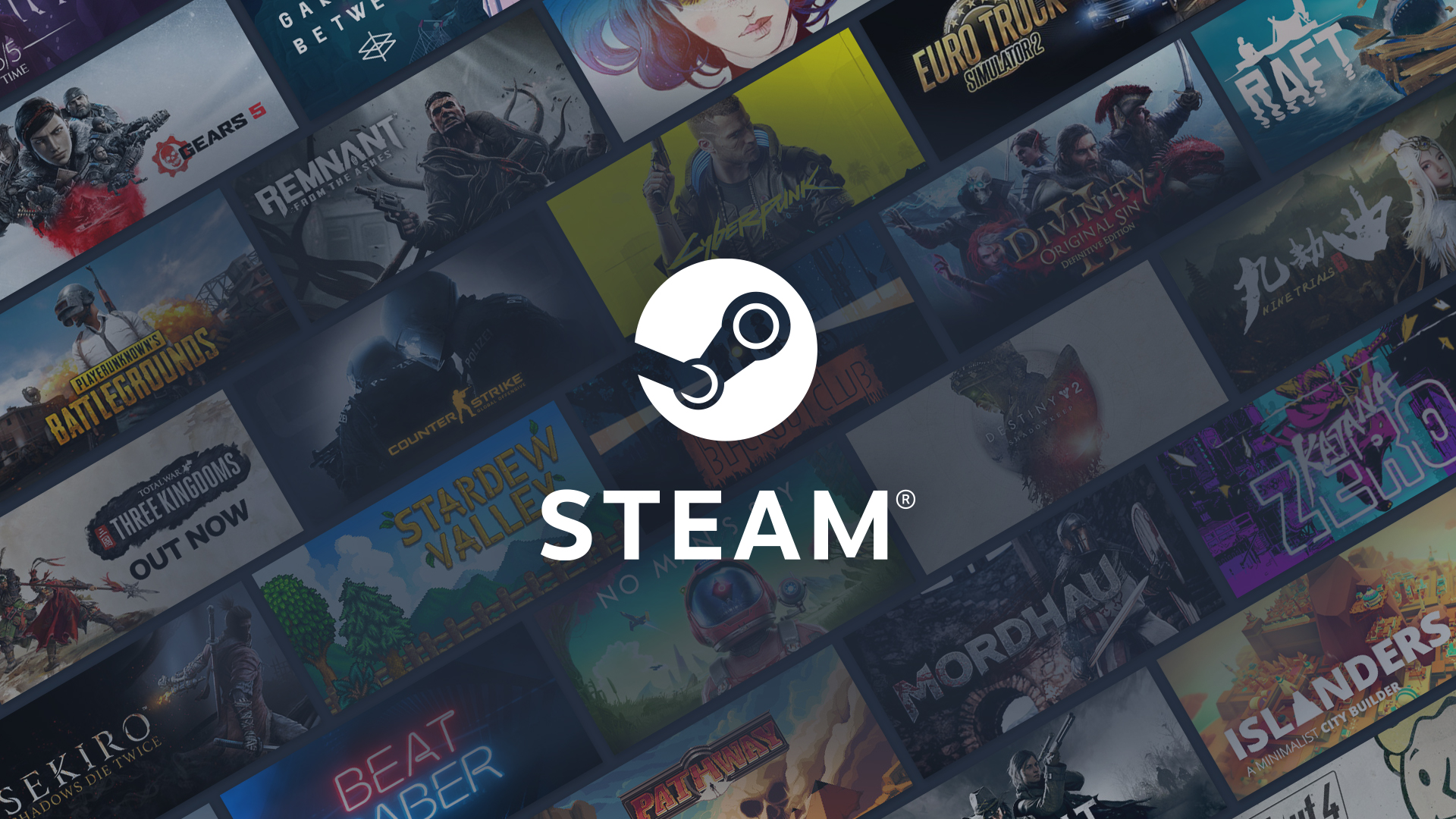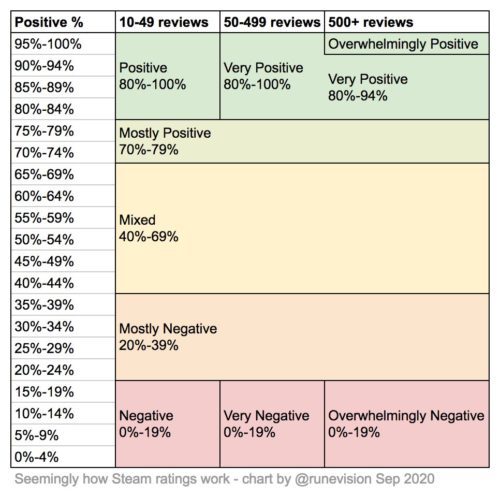Some backstory: Carless was contacted by game industry entrepreneur Jason Della Rocca, who recently spoke with Valve about Steam. Good folks from Valve identified a number of principles behind Steam’s algorithm that are often misunderstood. Carless decided to look at three of them in more detail.
1. User reviews
“Steam user reviews that are Mixed or higher have no impact on the various referral algorithms. If you are below Mixed, then your game starts to get filtered out.”
- Carless notes that even “Mostly Positive” ratings do not guarantee exceptional sales. It all depends on users’ interest in a particular game;
- some publishers (for example, No More Robots) still try to keep a user rating at least at “Very Positive.” No secret “algorithm drop” can happen, though, due to reviews.
Speaking of user ratings themselves, Steam calculates them taking into account both the number of user reviews and how many of them are positive.
Indie developer Rune Scovbo Johansen used the data from Carless’ post to compile a table of criteria for ratings on Steam
2. Algorithm tracks sales surges
“Steam doesn’t care if your burst of sales happens on launch day or 2 years after launch. A burst is a burst and the algorithm takes notice… with no penalty/effect from days-since-launch.“
- Landing your game on the “Featured / Recommended” bar on Steam’s front page can be algorithmic. You can also get there if Valve’s editors pick your title;
- as Carless notes, the algorithm kicks in whenever a sharp surge in sales happens, it’s triggered by “minute to minute velocity”;
- Take Among Us for example. After quietly exising on Steam for two years, the game made it to the “Featured” section thanks to the explosive growth in sales.
3. Algorithm doesn’t count clicks
“The various store page click/impression stats have no effect on the algorithms. That data is provided for teams to make more informed marketing/promotional decisions and gauge what’s having an effect to bring in more eyeballs.”
Carless compares SteamWorks to Google Analytics. It is just a tool to collect data, not “the place where the algorithm decides to do things.”
The good news is, the sales and popularity of a game is, for the most part, in the hands of developers. “How your game sells is generally to do with how attractive you make it and the community you build up, not.. an evil computer in Seattle messin’ with you,” Carless concludes.


